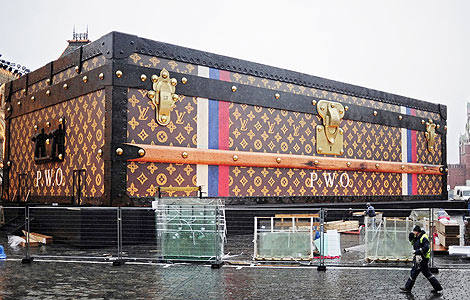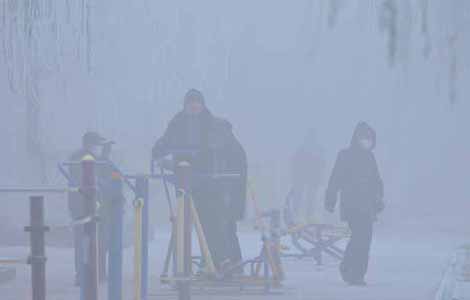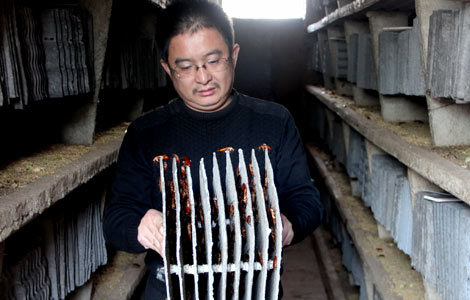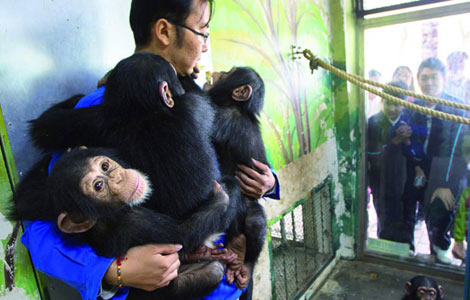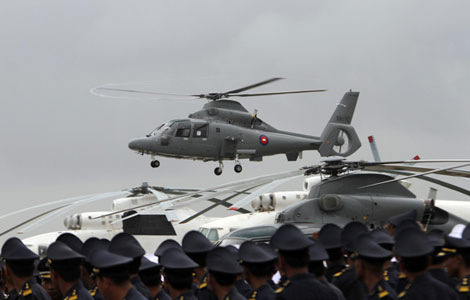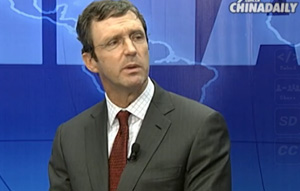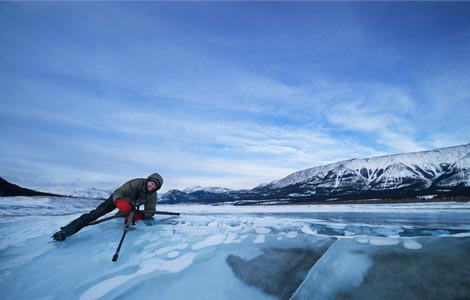China's air defense zone worsens situation: S Korea
Updated: 2013-11-27 16:09
(Xinhua)
|
||||||||
SEOUL - The recent announcement of China's Air Defense Identification Zone (ADIA) worsened the already tricky situations in Northeast Asia, South Korea's top diplomat said Wednesday.
"The issue of the ADIZ made the already picky situation (in Northeast Asia) more difficult to deal with," Foreign Minister Yun Byung-se said in his keynote speech for the defense forum held in central Seoul.
Conflicts in the Northeast Asian region were manageable from a broader perspective, but territorial disputes and historical issues could rapidly aggravate the regional situation when it meets with nationalism, Yun said.
His comments came after China announced last week the ADIZ in East China Sea that partly overlaps with Seoul's military air zone, or KADIZ, and covers the Ieodo, a southernmost submerged rock claimed by Seoul.
The newly launched ADIZ of China and the existing KADIZ had overlapping areas of 20 km wide and 115 km long. The ADIZ also covered Ieodo, which lies 149 km southwest of South Korea's southernmost island of Marado.
Senior military officials from South Korea and China will hold the third bilateral strategic talks in Seoul Thursday to discuss the ADIZ issue.
Touching on strained ties between South Korea and Japan, Yun said that the soured relations stemmed mainly from Japanese leadership's unrepentant attitude toward its militaristic past, noting that one who has tied a knot should untie it.
Relations between the two neighbors have strained as Japan's cabinet members visited the controversial Yasukuni shrine, a symbol of Japan's militarism with 14 class-A convicted war criminals enshrined.
South Korean President Park Geun-hye has harshly denounced the Japanese leadership for no repentance over its past atrocities under the colonial rule from 1910 to 1945, citing comfort woman, or South Korean woman forced to be mobilized by Japan as sex slaves during the World War II.
Park had yet to hold summit with her Japanese counterpart Shinzo Abe though her predecessors tended to select Japan as the second destination for their overseas trip. Park made a state visit to China in June for summit talks after visiting the United States a month earlier.
Most Viewed
Editor's Picks

|

|

|

|

|

|
Today's Top News
Ancient Chinese philosophies are eye-opening today
Tencent anti-monopoly suit trial starts in Beijing
PetroChina sued in US court
US B-52 in air zone monitored
Foreign auto makers change sales strategies
Court rejects appeal of military singers' son
Brooklyn, Shanghai hook up
Air zone 'not to affect routine flights'
US Weekly

|

|

